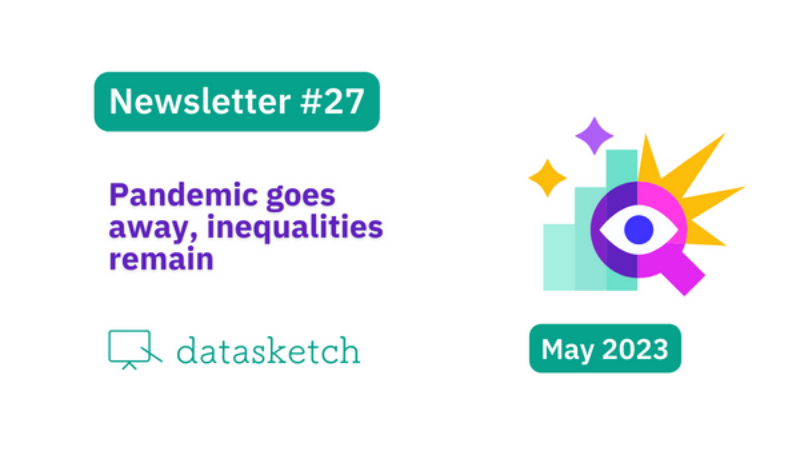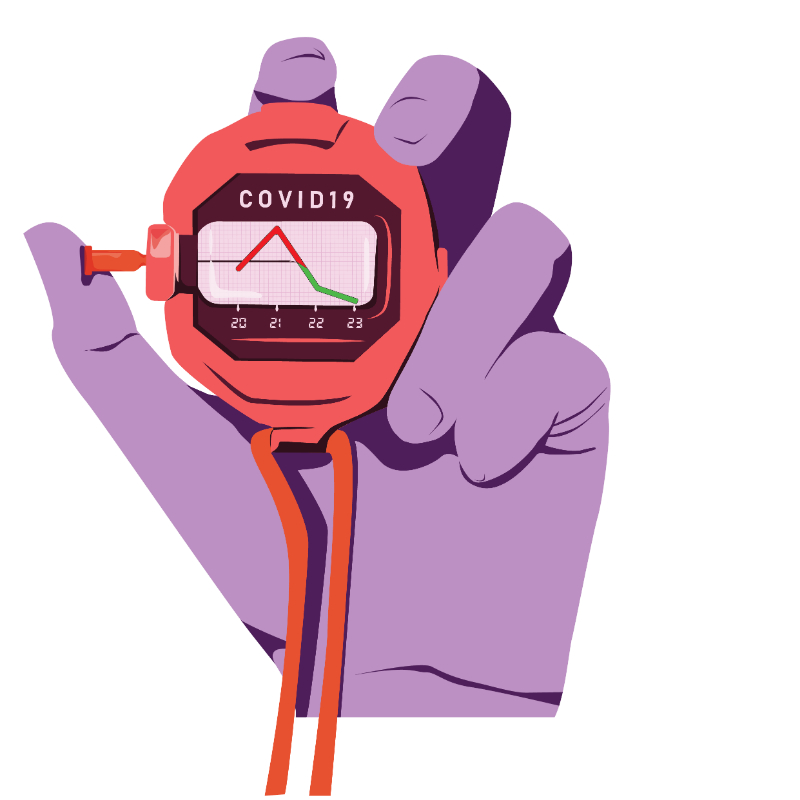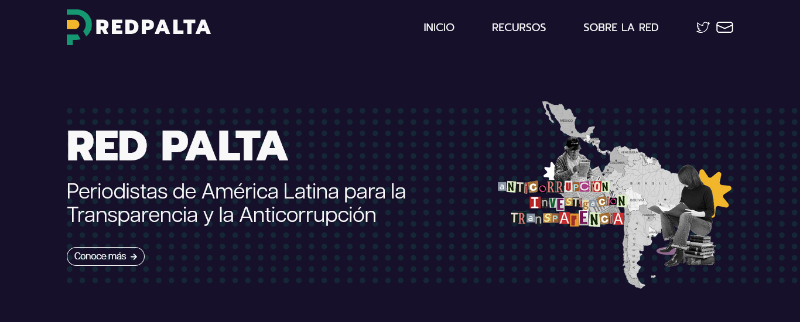Pandemic goes, inequalities remain - Datasketch Newsletter #27
COVID-19 | Contracts | Corruption
Available in:

WHO declared the end of the COVID-19 pandemic on May 5, 2023. We all remember what we were doing in March 2020. It was only three months since we had moved into the Datasketch House when we had to confine ourselves to our homes. A year later, we began to resume work in the office, albeit maintaining more remote and virtual models.
Globally, the pandemic left us with death and inequality. Taking action by mapping and exposing the situation has been the theme of several of the projects we worked on this year, making use of data, design and narratives. There are still many learnings to apply.
Anticipating the next pandemic
The People’s Vaccines Alliance is a coalition of over 100 organizations seeking accessibility to vaccination and treatment against COVID-19 and subsequent pandemics.
The COVID-19 Information System, which we built together, is an initiative that seeks to facilitate the generation of evidence for advocacy in Latin America. Distributed in six dashboards, you can find 30 indicators from different sources on the evolution of the disease, the vaccinated population, the effects on society and the business of vaccines.
One of the most popular is “Frequently Asked Questions” and allows you to explore the data using only questions answered with visualizations. To expand their use, all dashboards are in English, Spanish and Portuguese and are updated monthly.
Explore and find evidence for advocacy 🔬

This is a design we made for the presentation of the project. It shows the timing of the spread of the vaccination process in the region, along with the sustained decrease in COVID-19 deaths.
AI to detect corruption in purchases COVID-19
Artificial intelligences have more functions than fulfilling assistance tasks, and for the record, this text was written by us. With the increase in contracts to respond to the pandemic, the risk of corruption cases was also growing. That is why Transparency International launched a tool which bears our stamp. An AI was trained to collect news on embezzlement, bribery, sextortion, corrupt fraud, nepotism and corruption in healthcare.
Monitoring this information worldwide can help different organizations, journalists, researchers, and national and local governments map the purchase and distribution of COVID-19 vaccines to identify procurement irregularities during the pandemic.
Search for corruption cases closest to you 🕵🏾
Inequality in contracting and its irregularities
The Latin American Journalists' Network for Transparency and Anticorruption (Red PALTA) has just published its new research “The pandemic of the rich and the poor: Inequality of spending in Latin America”. It shows how the poorest municipalities opted to provide economic aid and food baskets, while some of the richest governments allocated high percentages for maintaining their green areas, solid waste treatment and sports activities.
The publication is accompanied by a new branding and website that we have created highlighting the work of the Network and its values. The research, redesign and a manual on Contracts as a source for collaborative journalism have been supported by Open Contracting.
See the research on the new website 🔍

On the radar
- 🛫 The difference in the reality of migrants and their Google search interests | Mohamed Waked
- 💻 Report “The future of digital democracy in the Global South: exploring the horizon of democratic and inclusive governance in the context of emerging digital technologies” | Center for Data Research for Development
- 👩🏾💼 The Gender Data Playbook for Women’s Financial Inclusion | Data2x
- 🎤 A complete guide to the songs and winners of the Eurovision Song Contest | Reuters
- 👷🏾 The Map of the Working Class History | Working Class History
Thank you very much for reading us! We’ve been going through some changes lately, but we’re sticking to sending you this newsletter. Expect a bi-weekly delivery from now on, bringing together the latest and highlights from journalism and data culture, and open government.




